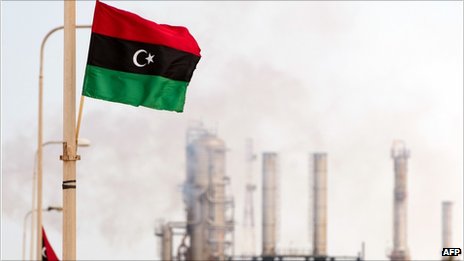Egypt’s Minister of Petroleum and Mineral Resources Tarek El Molla has announced that, since 2014, the country has signed 98 agreements with international oil companies to search for and exploit oil and gas.
El Molla noted that the total investments injected into the oil and gas sector during the period from fiscal year (FY) 2014/15 to FY 2019/20 amounted to about $74bn.
In a virtual symposium held by the British Egyptian Business Association (BEBA), El Molla pointed to four important projects in the field of refining, which saw investments amounting to $4.6bn.
These have been implemented to produce high-quality products, stressing that the quantities of petroleum products Egypt has imported from abroad have been reduced by 35%.
The minister stressed that the economic reforms implemented by the state succeeded in placing Egypt back on the map of global investments. This is in light of the strong support by President Abdel Fattah Al-Sisi for efforts to develop all sectors and activities of the state.
El Molla pointed out that Egypt has received the applause of global institutions, with the International Monetary Fund (IMF) announcing that the country was the second largest economy in the Arab region during 2020.
The minister pointed out that several international institutions and organisations have called Egypt the preferred destination globally for investments, especially petroleum investments. This was evident in the great demand from major foreign companies to pump investments in Egypt, especially in the oil, gas, and mining fields.
He also said that the comprehensive development and modernisation programme implemented by the petroleum sector has succeeded in attracting the attention of major international companies, such as Chevron and ExxonMobil.
These companies are, for the first time, keen to enter and work in the field of research and exploration in Egypt.
This is in addition to the interest expressed by international companies and institutions related to gas, who are looking to participate effectively in the activities of the East Mediterranean Gas Forum. These companies also consider Egypt as the starting point for their projects in the entire region.
The minister added that achieving self-sufficiency in natural gas has contributed to Egypt increasing the amount of this fuel that it consumes, as part of its energy mix.
Of Egypt’s energy mix during fiscal year (FY) 2019/20, natural gas accounted for 62%, compared to 48% during FY 2014/15, whilst the petroleum sector aims to reach 65% during FY 2022/23.
El Molla pointed to the efforts made by the petroleum sector to develop Egypt’s mining by implementing an intensive programme of structural, legislative, and financial reforms.
This includes applying governance systems, implementing training programmes, and building capacity for workers in the mining sector, with the aim of increasing its contribution to the GDP. It also aims to turn the mining sector into one of the pillars of the Egyptian economy.
El Molla noted that Egypt boasts enormous mineral wealth, and that work is underway to develop an independent strategy for each type of different minerals. He pointed out that a recent global bid resulted in the selection of 11 international and local companies to explore for gold in 82 sectors in the Eastern Desert, with a minimum investment of $60m.
The minister also noted that one of the most important objectives of the petroleum sector is to ensure energy security and avoid any supply gaps. This is in addition to: achieving financial sustainability through regular payment of dues to foreign partners; reforming energy subsidies; dismantling financial entanglements between state sectors; and achieving maximum value-added.
He also stressed that the project to deliver gas to homes enjoys great support from Egypt’s political leadership to overcome the difficulties and challenges facing the delivery process.
Natural gas has been delivered to 6 million housing units during recent years at a rate of 1.2 million housing units annually. The state has also allowed the citizens to pay for natural gas pipelines installation via instalments.
El Molla noted that the sector is currently working on increasing the number of cars that run on compressed natural gas (CNG), as well as increasing the number of gas refuelling stations. This is in addition to converting cars to work on the dual fuel system.
The minister noted that a total of 368,000 cars have been converted to the dual system so far, and that the number of refuelling stations amounts to 331 stations.
During the next three years, there are plans to add a further 400,000 cars by converting 150,000 cars and replacing 250,000 cars within the presidential initiative to replace old vehicles with new eco-friendly versions.
An intensive programme is currently being implemented to increase the number of stations to accommodate the targeted increase of newer vehicles that run on CNG.
El Molla stressed that Egypt has made great strides in efforts to transform into a regional centre for gas and oil trade and circulation.
This is through regional cooperation and the establishment of political links, as part of the East Mediterranean Gas Forum.
The minister noted that the forum has recently launched two initiatives to use liquefied natural gas (LNG) as fuel for ships and the use of natural gas as part of plans to reduce emissions.


